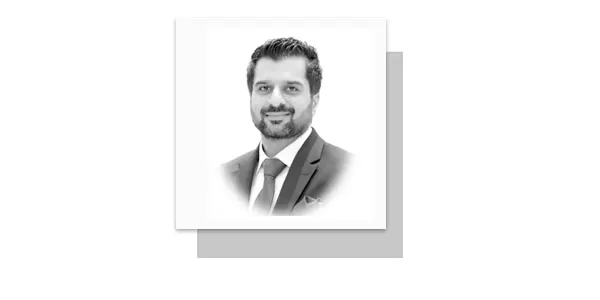THE formation of societies relies on the smooth operation of its organs. Societies deteriorate indefinitely when social institutions favour specific groups over the well-being of vulnerable and marginalized individuals. Throughout history, societies that neglected equal growth opportunities descended into chaos. Pakistan’s social structure is rapidly shifting towards a system that favours the powerful and wealthy, leaving the poor as victims of oppression and injustice. The efficient functioning of societies relies on various parameters. When societies don’t meet these parameters, it results in friction and unwanted battles among social groups. Justice is the key parameter for smooth social survival. Without justice, societies seek revengeful tendencies to satisfy their yearnings. Social justice aims to ensure that different segments of society work together effectively, allowing people to reach their full potential. It fosters unity and creates a feeling of safety for everyone.
However, when injustice becomes prevalent in society, a collective struggle for survival arises. The instinct for self-preservation drives society to pursue power accumulation. When a society is structured this way, it breeds social discord. Social schisms emerge as consequences of this social struggle, causing societies to become consumed by internal survival battles. This distracts government and policymakers making them turn ignorant to issues that need immediate attention. What’s more concerning is that those who become victims of social injustice wait for their turn to gain power and then use it to crush their opponents, turning societies into battlegrounds. The presence of this internal struggle leads to economic, political and social suffering in societies. Hence, social demise is primarily caused by injustice in a society. The residents of an unjust society experience different forms of injustice. One type of injustice is when those who amass wealth and power abuse human rights. The laws in these societies are intended to favour the wealthy, enabling them to live as they please. It excuses affluent individuals from the duty of preventing human rights violations. Poor and marginalized individuals who fall victim to brutality by the rich often face further humiliation during the pursuit of justice. In the end, the powerful emerges victorious and eludes legal jurisdiction.
Economic injustice is another form of injustice that arises in such societies. The wealthy and influential seize control of societal opportunities, compelling the marginalized to work for them. Furthermore, the distribution of resources is never equal and a handful of elites maintain their control over power and resources. As a result, the middle class and lower-middle class face limited opportunities for upward mobility. In societies like these, entrepreneurs face difficulties in finding a platform to carry out their projects because wealthy and influential individuals ensure that no one can bypass their system of elite capture. It gives birth to economic inequality.
This economic inequality prevents them from accessing better opportunities in education and healthcare. Wealthy children receive education at prestigious institutions while poor children endure compromised quality education, resulting in lifelong suffering. The absence of economic opportunities forces individuals to compromise their health, leading to poor mental and physical conditions. When people face economic deprivation, they become isolated in society and are more likely to fall victim to moral and social evils. The well-being of these families deteriorates as they fall victim to poverty. Is there a greater form of injustice than subjecting someone to mental, physical and psychological suffering?
Besides, the political alienation of individuals is the third type of injustice. Political inclusion is crucial for communities as it allows them to participate in the policy-making process. Nevertheless, due to the elite capture of politics, political alienation prevents the middle and lower middle classes from shaping policies that serve their interests. This is the only reason why societies do not facilitate their citizens. The dominance of a small group of elites in politics leaves marginalized communities vulnerable to their self-serving laws and regulations. It sparks a never-ending political conflict in society as it gives rise to various ideologies. The birth of multiple political parties is a direct consequence of this phenomenon. Societies like these are perpetually politically divided, haunted by political polarization.
Such societies demand reforms to avert a social disaster. Inclusivity of all societal segments is crucial for achieving social justice. The peaceful survival of societies requires the elimination of any distinction in the provision of justice between the rich and poor. Those who commit crimes must be held accountable and society as a whole must fully recognize and accept this. Additionally, everyone should have equal access to economic opportunities, irrespective of their caste and creed. It promotes harmony among all segments, preventing any animosity. This creates a peaceful society by resolving class struggle for resources and power. For a society to be politically stable, political inclusion is essential. Ensuring inclusivity in politics is crucial for a political ideology to cater to the majority, fostering social harmony and sustainability. It guarantees that every segment of society has a voice, crucial for social progress.
Unfortunately, the menace of elite capture has turned our society into an extractive one. Our social, economic and political challenges stem from an exploitative structure that limits access for many. We must understand that societies cannot sustain themselves in this manner and we require an immediate social transformation to achieve prosperity and progress. To strengthen Pakistan internally, it is crucial to achieve social, political and economic justice for all. Without making this a reality, we’ll keep confronting the daunting obstacles of societal, political and economic collapse.
—The writer is an educationist and a Commoner from 44th Common, based in Sargodha.
(waqarhassancsp@gmail.com)










